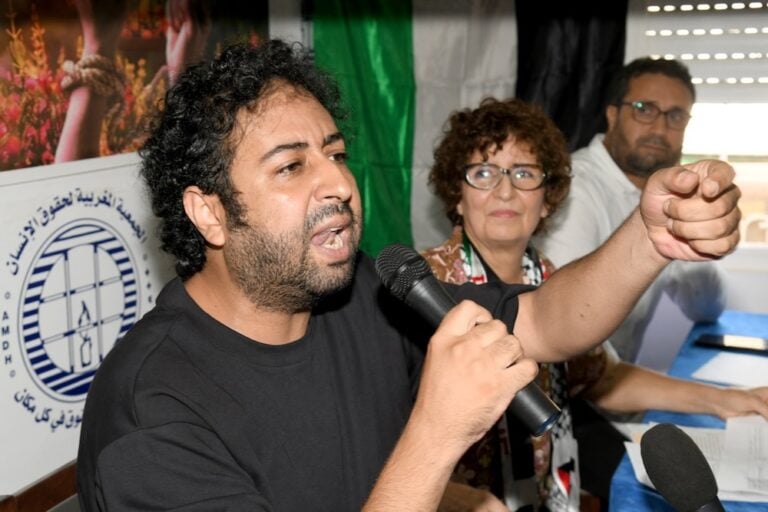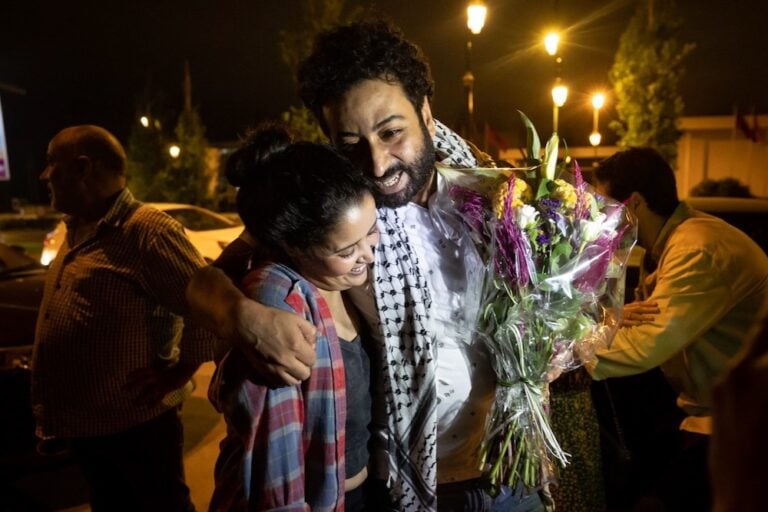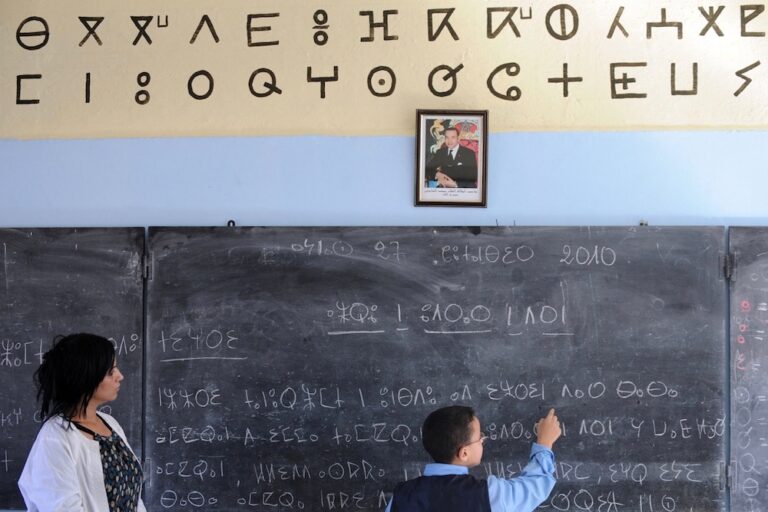(RSF/IFEX) – RSF is deeply concerned over the 16 June 2004 arrests of journalist Tor Dagfinn Dommersnes and photographer Fredrik Refvem of the Norwegian daily “Stavanger Aftenblad”, after they were declared “personae non gratae”. The organisation called on the Moroccan authorities to allow the journalists, who had complied with all the necessary formalities, to be […]
(RSF/IFEX) – RSF is deeply concerned over the 16 June 2004 arrests of journalist Tor Dagfinn Dommersnes and photographer Fredrik Refvem of the Norwegian daily “Stavanger Aftenblad”, after they were declared “personae non gratae”.
The organisation called on the Moroccan authorities to allow the journalists, who had complied with all the necessary formalities, to be allowed to travel freely, and recalled the previous expulsions of Norwegian journalist Erik Hagen on 5 April and French journalist Catherine Graciet and photographer Nadia Ferroukhi on 28 January.
“The Moroccan authorities keep a close watch on the activities and movements of journalists and attempt to block any independent reporting on Western Sahara,” said the organisation.
“We have heard accounts from foreign journalists who had not even interviewed their contacts when they were arrested and expelled. It is presumed that foreign journalists are followed and their phones tapped. These arrests and obstructions of press freedom are extremely serious. We call on the Moroccan authorities to revisit their decision to expel Tor Dagfinn Dommersnes and Fredrik Refvem.”
Four security services agents arrested the two journalists in their Rabat hotel room at 6:00 a.m. (local time) on 16 June, on the grounds that they were “personae non gratae” and were “breaking Moroccan law”. The journalists had press visas and permission to take photographs.
They had arrived three days earlier and were scheduled to interview someone on the issue of Western Sahara at 10:00 a.m. that same day. Dommersnes had phoned the contact from the hotel the night before to arrange the appointment.
“The security services were very probably aware of the phone call and that led to our arrest,” Dommersnes told RSF by telephone as he was about to be expelled to France.
RSF recalled that on 5 April, Norwegian journalist Erik Hagen was deported from Laayoune, in southern Morocco, to Mauritania. Police arrested the journalist who had travelled there to meet human rights activists and former political prisoners. He was questioned by police for several hours about the reasons for his visit to the Sahara and was accused of working with the Polisario Front, a Western Saharan independence movement. He was expelled to Mauritania under the escort of two police officers on a 26-hour bus ride. His passport was returned to him at the border. Knowing that journalists were not welcome in Western Sahara, he had said he was a tourist. “The authorities never even asked what permission I had during the questioning. It was because I was going to meet human rights activists, considered by police to be separatists, and because my visit was a ‘provocation’ to the kingdom that I was expelled,” Hagen told RSF.
French freelance journalist Catherine Graciet and French photographer Nadia Ferroukhi were expelled on 28 January when they arrived in Laayoune to meet with human rights activists who backed independence for Western Sahara. That morning, before leaving Agadir, they had talked to students about the issue of Western Sahara. They were arrested a few hours later at a roadblock in Tarfaya and were questioned at length by security forces, then taken back to Agadir and deported to France. The French Consul, who, as French nationals, they had requested to see, was unable to meet with them.


